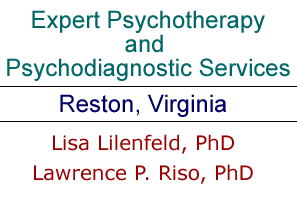



|
|
|
All clients are currently being seen through teletherapy (phone or videoconferencing). Our Treatment Approach
Cognitive-Behavioral Therapy (CBT)
We are highly trained and experienced in cognitive-behavioral therapy (CBT). CBT is a problem-focused therapy, and the most extensively researched psychotherapy in the entire field. As a broad term, CBT encompasses cognitive therapy, Behavioral Therapy, exposure therapy, and dialectical Behavioral Therapy. Since CBT is a structured approach, you will come up with a short list of topics for the start of each session so that the time can be used efficiently. The “cognitive” part of model will address problematic thoughts and assumptions, while the “behavioral” component focuses on skills and engagement with the environment. The concepts and skills you learn will help you to become your own therapist. CBT is the only therapy that has been demonstrated to help keep people well even after they are no longer seeing a therapist. We are not casual practitioners of CBT, but rather deeply committed specialists. We have taught numerous classes in CBT, provided supervision and workshops to professionals, and written scholarly articles and book chapters on the topic (see About Us). We stay current on developments in CBT by attending professional meetings and we are both members of the Association of Cognitive Behavioral Therapies (ABCT). Schema Therapy Originally a form of CBT, schema therapy (ST) is now a separate therapy. It was developed as an emotion-focused approach for individuals with long-standing difficulties (e.g., personality problems, chronic unhappiness and depression, marital/couples problems). ST is an intensive treatment that incorporates emotion-focused interventions. For instance, clients may be asked to vividly imagine events from the past. With the help of the therapist, you can uncover, and then rescript (i.e., re-interpret), damaging messages derived from past events and interactions with others. The rescripting is done under conditions of high emotional arousal. For many, if not most people, simply being given evidence that a negative believe not true is not enough. For long-standing problems, emotional activation is often vital. Without activating deeper emotional beliefs, clients may leave therapy knowing logically that negative beliefs are not true, but still feel as though they are true. ST employs a number of emotive (i.e., emotion generating) strategies to provide deeper and more fundamental change, when necessary. ST is well studied and it is recognized by the American Psychological Association (see Division-12) as a Research Supported Treatment. Back to Top of Page |